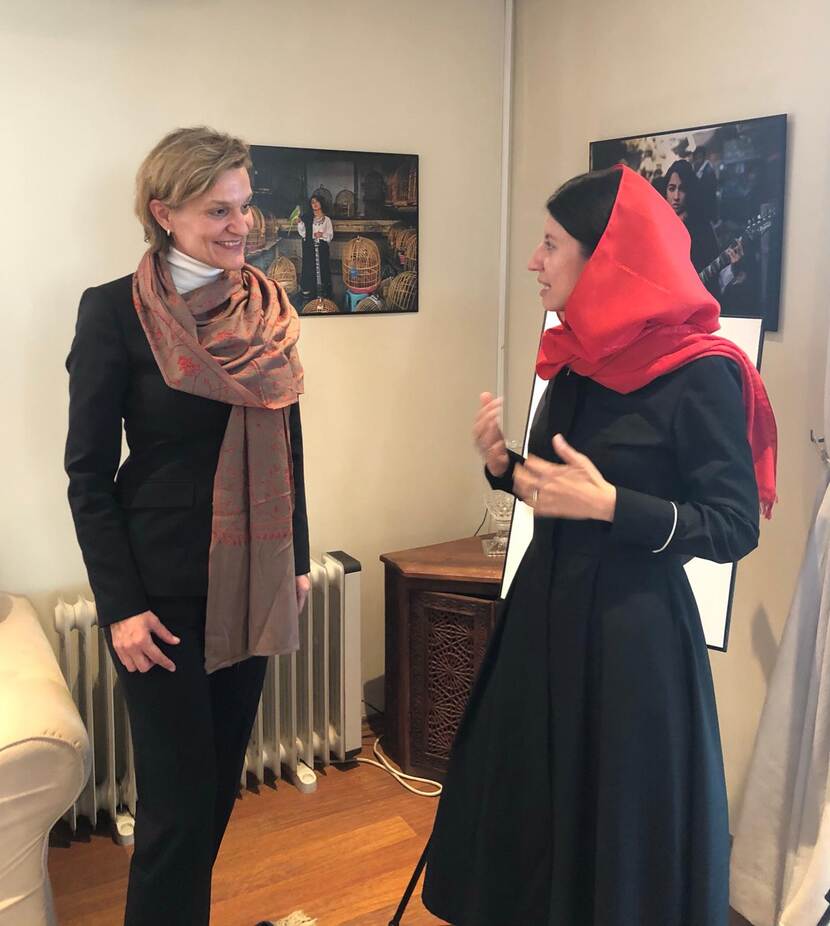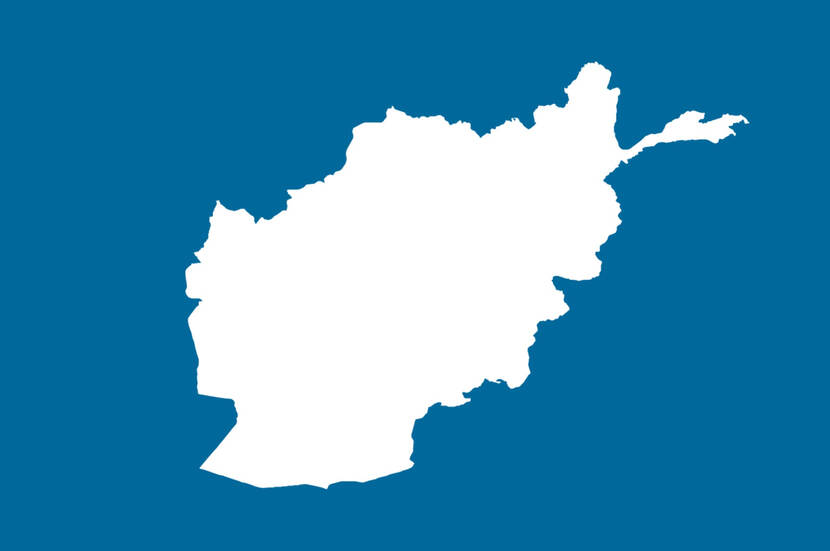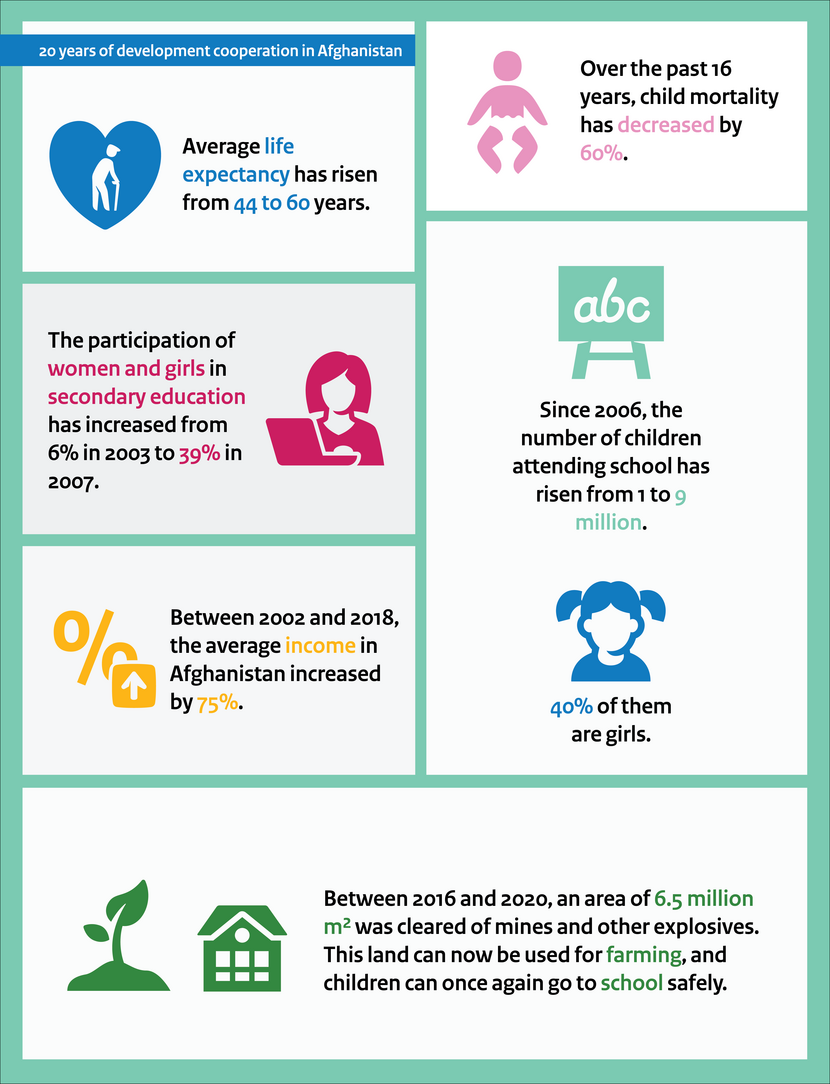5 questions about the Netherlands’ involvement in Afghanistan
At the end of June 2021, the last Dutch military personnel left Afghanistan. A historic moment, marking the end of almost 20 years of Dutch military presence. But even after the military mission has ended, the Netherlands will continue to actively support the country. Here, Caecilia Wijgers, the Dutch ambassador in the capital Kabul, answers five questions about the Netherlands’ involvement in Afghanistan. ‘We’re standing at a crossroads in history.’
The Netherlands Embassy in Kabul can no longer be reached through its original email address and phone number. For urgent questions only, please contact us at the new email address kabul@minbuza.nl. For consular emergencies you can call +31247247247.
The information in this article is no longer up-to-date.
20 years of commitment to security, stability and the rule of law in Afghanistan
It started in 2001, with the 9/11 terrorist attacks. For the first time in its history, NATO invoked article 5 of its treaty, whereby an attack against one Ally is considered as an attack against all the Allies, and a coalition of NATO countries sent troops to Afghanistan. At the time, the Taliban was in power, and was offering terrorist groups a safe haven. After a major offensive, the Taliban regime was overthrown and al Qa’ida driven out. But the country descended into chaos.
For 20 years, the Netherlands and other Allies worked with the new Afghan government, the local population, and the Afghan police and army to promote stability, security and the rule of law. What form did this collaboration take, and what is the situation now? And how do we ensure that the results we’ve achieved are lasting? Caecilia Wijgers explains by answering these five questions.
1. What have the Netherlands and NATO achieved in Afghanistan since 2001?
‘Development cooperation and military and diplomatic efforts have achieved significant results. In recent years, life expectancy in Afghanistan has risen from 44 to 60 years. Education has become more accessible, especially for women and girls. And the security sector – which had to be built more or less from scratch – has been solidly underpinned thanks to financial support and training missions. The country now has a democratically elected government that allows space for free media.
But growing instability and a lack of security show that these results are not irreversible.’
2. Why is it important to continue supporting Afghanistan?
‘Not all developments can be expressed in figures. There has also been a change in the mindset of the people of Afghanistan. Society is showing the will to bring about positive change, and the strength to do so. This is not the same Afghanistan that was conquered by the Taliban in the late 1990s.
We are standing at a crossroads in history. A new generation of Afghans has arisen, including many women who are not afraid to speak out. That progress needs to be safeguarded. And we need to continue supporting these people. Many sacrifices have been made to promote security, stability and human rights in Afghanistan. By Afghans, and also by the 25 Dutch military personnel who gave their lives for this cause. And the job is not yet done.
A stable and secure Afghanistan is also in the interests of the wider world, to prevent the country once again becoming a haven of international terrorism. And to prevent large migration flows resulting from instability and conflicts in the future.’
3. How will our support for Afghanistan change now that the NATO troops are withdrawing?
‘It’s important to make clear that the Netherlands and other NATO Allies are still in Afghanistan, despite the withdrawal of the troops. As long as it’s safe to do so, the Netherlands will have a presence in the country, and we will work from Kabul together with Afghan government and civil society leaders. Because the ultimate goal is to achieve lasting – and above all independent – stability in Afghanistan.
For the time being, the Afghan government is urging international partners to maintain a continued presence. The Netherlands will go on providing development assistance as long as this can be done safely and responsibly, and as long as Dutch efforts remain sustainable. Among other things, our support is helping to build and strengthen the police and judicial sectors, to protect the Afghan people by enhancing the security of their communities, and to carry on de-mining activities. NATO will also continue to assist Afghanistan, for example by funding the Afghan armed forces.’
4. How can we prevent the situation in Afghanistan from deteriorating?
‘The peace talks between the Afghan government and the Taliban offer the best prospect of a stable and secure Afghanistan. But this will take a great deal of effort and time to achieve. There is a very real chance that instability will increase again in the coming period, now that the Taliban are capturing more and more territory.
As we see it, now that we’re on board we can’t just abandon ship. It’s important that we remain committed to Afghanistan. So that everyone who has the courage to defend human rights can be supported. They are the agents of change. We are still there, for them and with them.
It’s also important that the Afghan police continues to function effectively. The Netherlands has invested a great deal in efforts to ensure this. The police are a civilian force in society, responsible for the safety of the Afghan people.’
‘Before you can develop and progress, either as an individual or as a country, you first need to be able to exit survival mode.’
‘The people of Afghanistan are suffering from a collective trauma. For over 40 years, the country has been ravaged by conflict. Every family has lost someone, or seen someone killed. Before you can develop and progress, either as an individual or as a country, you first need to be able to exit survival mode. More and more victims of the country’s violent past are uniting to make their voices heard. For example at the peace talks in Doha, or in efforts to improve their own economic development. There also needs to be recognition of the suffering endured in order to move on.’
5. What should everybody know about the situation in Afghanistan?

‘Despite the increasing violence, life in Afghanistan is not at a standstill. Children are going to school, and an increasing number of women are attending higher education. In fact, at Herat University, over half the students are women. I have come to know the Afghans as a courageous, strong and proud people. They carry on resiliently, despite all they’ve gone through, and literally risk their lives every day to be able to do their work. We cannot abandon these people.
Afghanistan has enormous potential and much to offer the world. But to achieve that, the country needs peace and stability. That remains its biggest challenge.’

